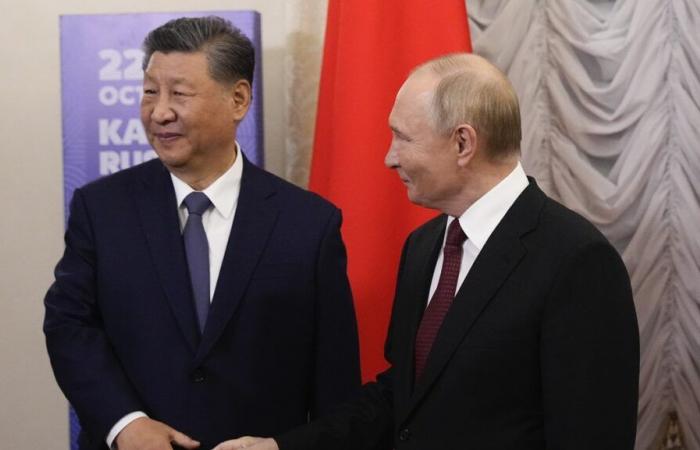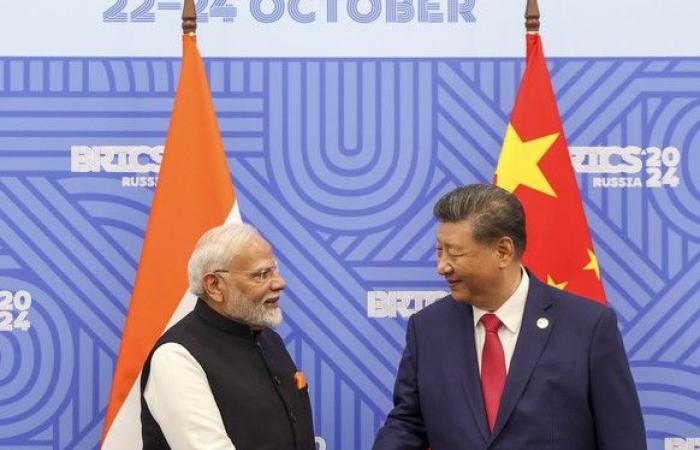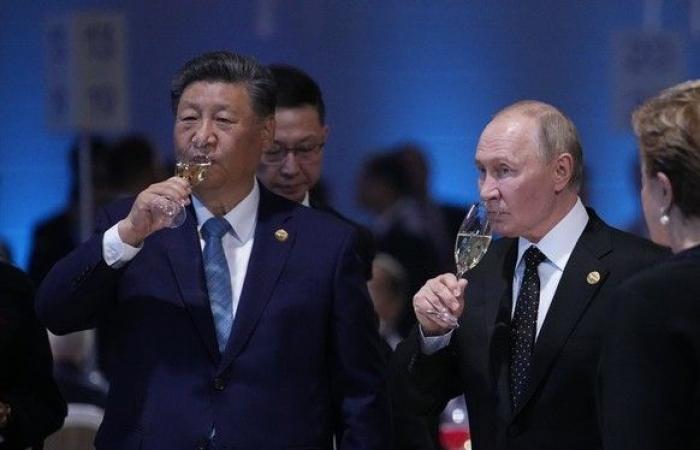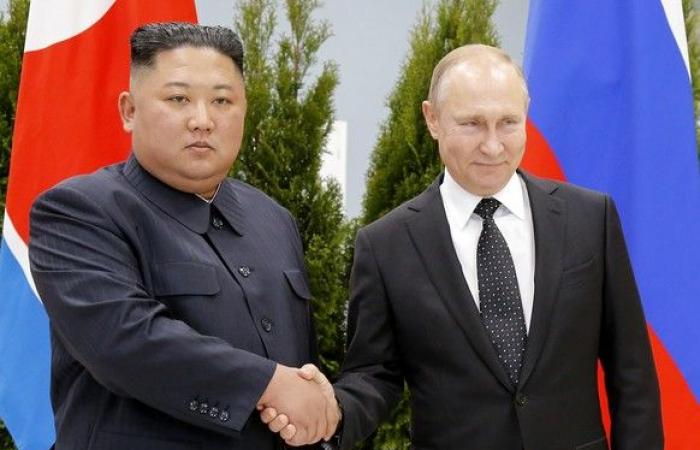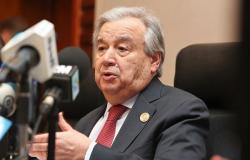Xi Jinping’s allies cause him a lot of trouble.Image: keystone
China’s aggressive expansion policy is seen as a threat by many of the People’s Republic’s neighbors. But for now, it is mainly Beijing’s allies, notably Russia, who are annoying Chinese President Xi Jinping.
Patrick Diekmann / t-online
More from “International”
An article from
Last week, China and India reached an agreement aimed at ending violent conflicts around the border of India’s Ladakh province in the Himalayan region. The leaders of the world’s two most populous countries have agreed to reintroduce joint patrols on the disputed border. This step marks an important turning point for both nations and sends a strong signal to the entire Asian continent.
This is a significant step towards moving away from potential armed conflict. The border dispute is certainly not resolved, and other escalations remain possible, but the region can finally breathe. Especially since China is currently going through difficult economic times. Just two weeks ago, China’s statistics service revealed a continued slowdown in the People’s Republic’s economic growth.
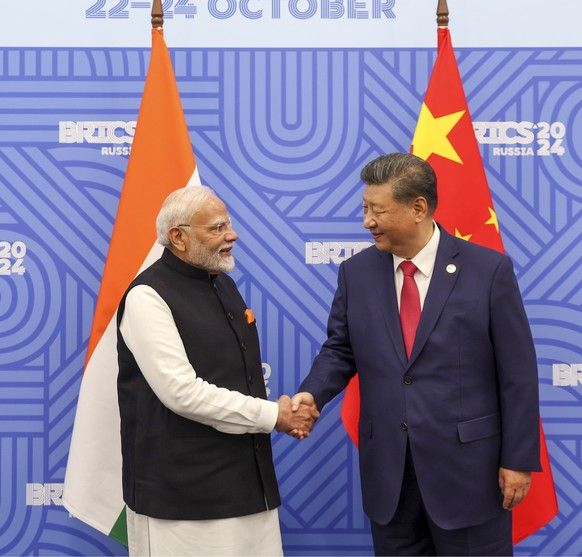
Narendra Modi and Xi Jinping at the Brics summit in Russia: their rapprochement is a strong signal.Image: keystone
In the third quarter, the world’s second-largest economy posted growth of 4.6% compared to the same period of the previous year, 0.1% less than in the previous quarter. The Chinese economy is therefore recording its weakest growth since the start of 2023.
This is creating a climate of concern in Beijing, where leaders are considering new debts and a stimulus package to address them. In this delicate context, Chinese President Xi Jinping is trying to find a subtle balance in his relations with the West. However, it is above all its geographical neighbors and its allies that pose a problem for China currently.
Support Putin, but at what price?
The most obvious example is that of the Sino-Russian relationship. Vladimir Putin and Xi Jinping are close strategic partners, something they regularly emphasize during their joint public appearances. Since Putin largely broke away economically from Western countries, energy-hungry China happily buys Russian raw materials at a discount, while its products flood the Russian market, filling the gaps left by Western companies .
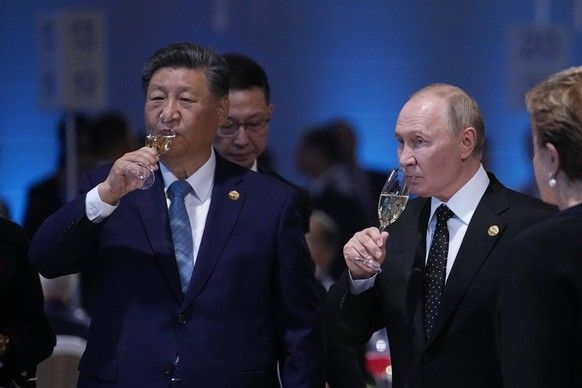
A little drink with Putin.Image: keystone
But this is only one facet of this alliance. On the political security front, Putin’s war of aggression in Ukraine is a source of irritation for Beijing. According to Chinese diplomats, Chinese leaders remain perplexed by Russian army’s inability to win wareven after two and a half years of fighting.
Xi Jinping supports Putin because the latter appears more reliable to China as leader of Russia and is now economically dependent on the People’s Republic. However, this war also has negative consequences on the world economy: inflation, shortage of raw materials, increase in military spending. This compromises the Chinese economic model, which is based on the smooth functioning of international trade. At the same time, Western states are reviewing their dependence on Russia and questioning their supply chains with China.
Many European companies are now seeking to diversify their production by moving towards India or other Southeast Asian countries. To avoid total isolation from the West, Xi Jinping has kept his distance from the conflict in Ukraine, refusing to send weapons directly to Russia. On the other hand, China continues to provide financial and political support to the Kremlin on the international stage, which complicates its relations with the West.
Kim Jong-Un causes tension
Further complicating the situation for Beijing is the fact that Russia has entered into an alliance with another problematic neighbor, North Korea. During his visit to North Korea last June, Putin signed a mutual assistance pact with dictator KimJong-Un, which commits both nations to intervene if either country is attacked. North Korea has reportedly sent thousands of troops to Russia to support Putin in the war in Ukraine, a new step in this escalation.
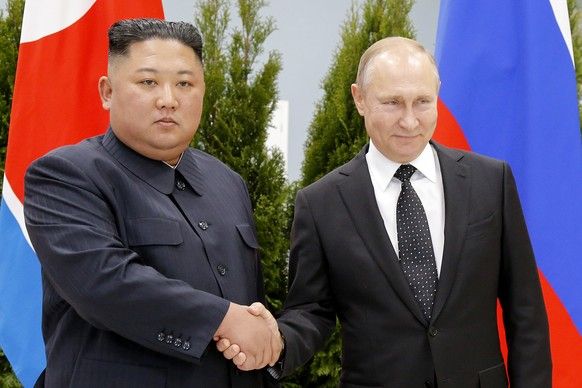
Vladimir Putin and Kim Jong-Un: Russian war of aggression against Ukraine leads to an alliance of autocrats.Image: keystone
This also demonstrates North Korea’s distancing from China, its main protector. Since 1961, the two countries have been linked by a defense treaty, and they once considered each other ideological allies in the fight for communism. But that period is over, and Sino-North Korean relations have long been strained.
China is annoyed by Kim Jong-Un’s threats of annihilation of South Korea and the United States and by regional tensions caused by his nuclear program. Worse still, by evoking a war in Europe, Kim Jong-Un could spark wider geopolitical confrontationexacerbating tensions with the United States, which goes against Beijing’s interests.
Additionally, Putin has promised military support to North Korea, which could make Kim Jong-Un’s regime even more aggressive. Beijing fears this could prompt key US allies in the Indo-Pacific, such as Japan and South Korea, to also boost their military capabilities, a nightmare scenario for Xi Jinping.
China, however, remains the main economic supporter of North Korea, but ideological dissensions between the two countries are increasing. According to the English platform The Korea DailyNorth Korea has reportedly repeatedly stated that if Japan is a “century-old enemy”, China would be a “thousand-year-old enemy”.
North Korea particularly criticizes China for not being more offensive towards the United States. In Beijing, Kim Jong-Un’s regime is seen as archaic and resistant to any modernization, the opposite of the path of openness adopted by China since the 1980s.
China fails in Myanmar
The situation in Myanmar is also a source of security concern for Chinese leaders. The existing military regime, supported by Beijing, could lose the ongoing civil war. China has invested heavily in infrastructure and megaprojects in Myanmar, banking on the corrupt generals responsible for the coup. However, Beijing is now frustrated by the apparent failure of the military regime, which is failing to stabilize the country.
The common border, where rebel groups recently took control of border posts, is a source of concern for Xi Jinping, who aspires to a return to calm and peace in Myanmar so that trade can resume normally. Beijing tried to organize peace negotiations between the different factions, but to no avail.
In the end, China draws a bitter lesson from its relations with its neighbors: although it has become an economic and military superpower, this influence remains difficult for Xi Jinping to exercise. Relations with North Korea and Russia show that China is still hesitant to put pressure on these allied regimes. The same goes for Myanmar, where Beijing seems unable to restore peace.
China’s strategy of restraint allows these allies to act against its interests. Xi Jinping still seems to be looking for a way to exert greater influence, but this remains a very complex balancing act for the People’s Republic.
translated from German by Anne Castella

